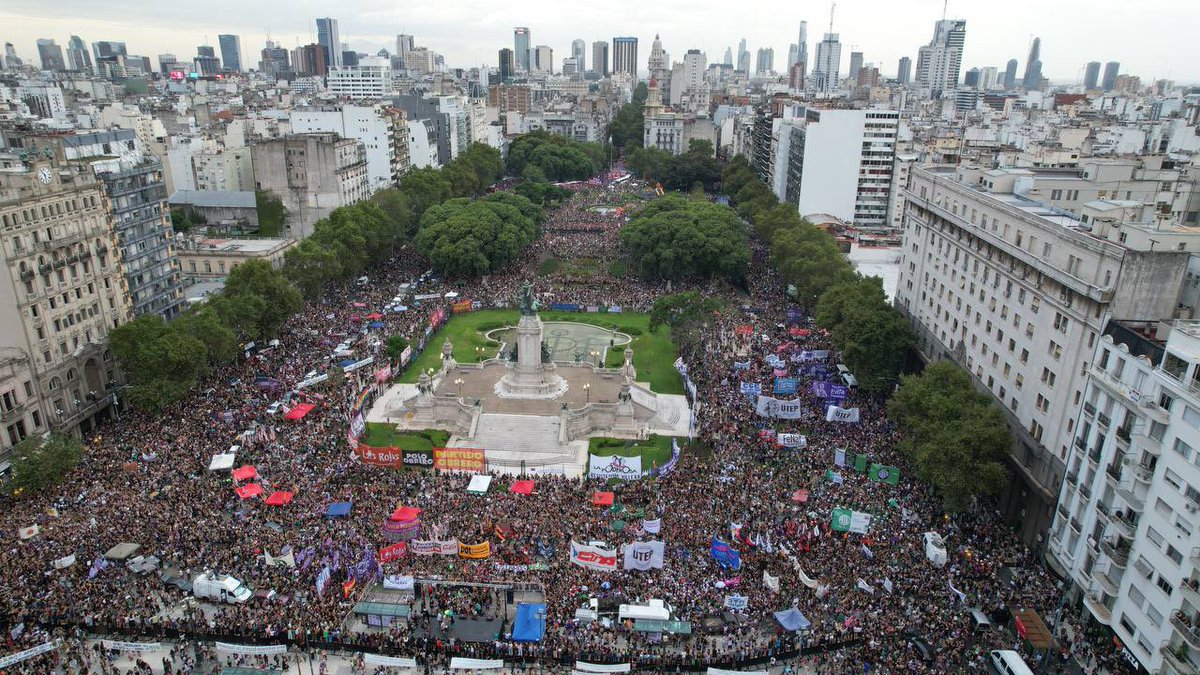[ printer-friendly version ]
Backyard Bully?
by Conn Hallinan | September 12, 2002
Want to know what all those mind-numbing figures on Brazilian bond ratings, Argentinean currency fluctuations, and Bolivian privatization mean in the real world?
Some 23 million Brazilians are malnourished, and 40,000 a year die of hunger. Brazil has 53 million poor, 23 million homeless, and eight million unemployed. Argentina’s unemployment rate is 21.5% and half of its 36 million people live in poverty. In Bolivia, 6 out of 10 people are poor, a figure that rises to nine out of 10 in some rural areas.
One could go on, adding Columbia, Venezuela, Paraguay, Ecuador, and Peru to the litany of poverty that transforms the cold math of international finance into human figures of misery.
According to the Bush administration, the International Monetary Fund (IMF), and the World Bank, the solution to the financial crisis is more free trade, privatization, and austerity. According to an increasing number of Latin Americans, the solution is to cast aside two decades of such tried and failed policies. The problem is that the latter approach is on a collision course with the former, as Brazil has already discovered.
When leftist Workers Party’s candidate Luiz Inacio Lula de Silva, a critic of IMF policies, took the lead recently in the country’s race for president, Morgan Stanley Dean Witter and Merrill Lynch arbitrarily downgraded Brazilian bonds, weakening its currency and increasing its debt. Even the normally staid Financial Times took sharp issue with the move, accusing bond market investors of "overreacting," adding that the rating "is out of line with Brazil’s relatively solid public finances and low inflation."
Misplaced panic by our financial titans or deliberate sabotage? That is the question many Brazilians are asking these days. They recall 1964 when their populist President, Joao Goulart, was overthrown by a U.S.-backed military coup for even considering land reform, rent control, restricting foreign profits, and nationalizing oil.
The recent offer by the IMF to loan Brazil $30 billion seems a godsend on the surface. But the loan is not aimed at alleviating Brazil’s gross disparities in wealth, but insuring it will pay back $20 billion to Citibank and FleetBoston through "austerity measures." But even the current conservative and pro-IMF President, Fernando Henrique Cardoso, says "Brazil has tightened its accounts so far that it doesn’t know where to tighten any more."
What happens if Silva wins on October 6 and, instead of cutting social services, follows through on his plan to spend $16 billion a year to combat poverty and illiteracy? Suppose Brazil takes an independent line on issues like Colombia’s civil war?
With U.S. policy toward Latin America being decided by right-wing politicos likes Otto Reich and John Bolton at the State Department, and Rogelio Pardo-Mauer at the Defense Department, many in the region are understandably nervous.
After Reich and Rogelio Pardo-Mauer openly supported the failed coup against Hugo Chavez in Venezuela, former Brazilian foreign minister Luis Felipe Lampreia warned there was "anxiety in Brazil and the rest of Latin America because the U.S. no longer seems so committed to democratic principles."
The bottom line is that Brazil and other countries in Latin America are going to have to make a choice between Citibank and their own people. The question is whether the U.S. will allow the people of Latin America to find their own road to modernity and prosperity. Or are we looking at a return to the dark years when we destabilized countries we disagreed with and supported dictatorships that held a continent hostage?



